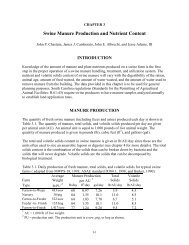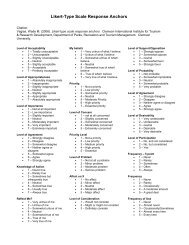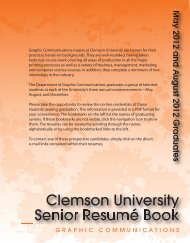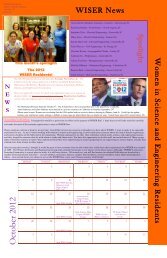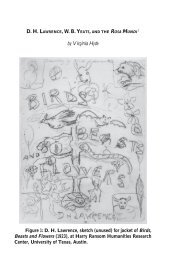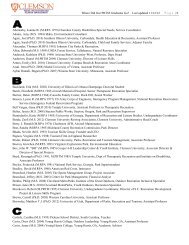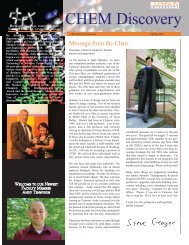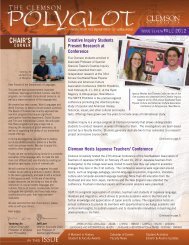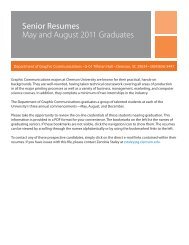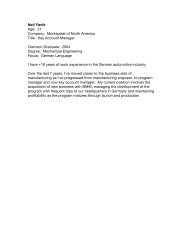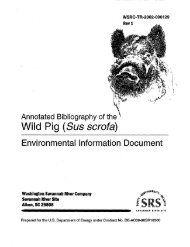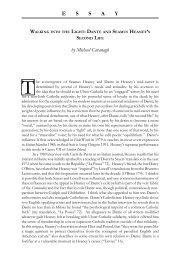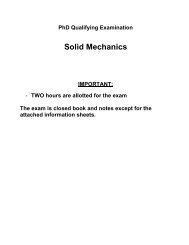Woolfian Boundaries - Clemson University
Woolfian Boundaries - Clemson University
Woolfian Boundaries - Clemson University
You also want an ePaper? Increase the reach of your titles
YUMPU automatically turns print PDFs into web optimized ePapers that Google loves.
BUGGERY AND MONTAGE:<br />
BIRMINGHAM AND BLOOMSBURY IN THE 1930S<br />
by Lara Feigel<br />
In 1931 the Hogarth Press published Saturday Night at the Greyhound by John Hampson<br />
Simpson, a working-class writer from Birmingham. Virginia Woolf’s initial reaction to<br />
Hampson was somewhat sceptical: ‘We have discovered a good novelist, homosexual,<br />
a waiter, I think, in Cardiff ; but he wont help—his rags will further diminish our hoard’<br />
(L4 221). Despite his dubious provenance, Hampson turned out to be very profi table and<br />
Saturday Night quickly sold ten thousand copies. Hampson was fêted by the younger generation<br />
of Bloomsbury intelligentsia, hungry for contact with the working classes, and soon<br />
Birmingham would be the unlikely twin-town of Bloomsbury, as young upper and workingclass<br />
writers passed freely between the ivory towers and grubby brickworks factories. In this<br />
paper I shall explore the connections between London and the Midlands, fi rst by looking at<br />
the friendships developing between the two groups of writers and then by looking at a particular<br />
technique, cinematic montage, that I see as bonding these writers artistically. I shall<br />
suggest that, far from diminishing Woolf’s hoard, Hampson was responsible for enriching<br />
not only the Press’s purse but also Woolf’s own artistic vocabulary as she moved towards<br />
cinematically inspired montage in her politically engaged 1930s writing.<br />
John Hampson himself formed the hub of the wheel linking working-class Birmingham<br />
with chattering-class Bloomsbury. He was a key fi gure in the Birmingham Writers’<br />
Group that developed in the mid-thirties and formed the nexus for literary Birmingham.<br />
Hampson’s working-class credentials are in fact slightly dubious. He was born into the affl<br />
uent home of middle-class, double-barrelled parents. Leslie Halward, a more convincingly<br />
working-class member of the Birmingham Group chastised Hampson for his apparently<br />
working-class short story, “Man About the House,” in 1935 saying: “only middle and upperclass<br />
parents explain to their children why they are thrashing them” (cited by Simpson 22).<br />
Nonetheless, Hampson’s parents fell rapidly into penury and Hampson went on to live in<br />
poverty and prison as a kitchen-hand, billiard marker, and book thief, before beginning his<br />
literary career and becoming a key player in the Birmingham Writers’ Group.<br />
Th e Birmingham Group itself was brought into being, rather surprisingly, by the American<br />
critic Edward O’Brien, who was editing the best short stories of 1935 and noticed that<br />
many of the strongest stories of working-class life had been written in Birmingham. In an introduction<br />
to Halward’s To Tea on Sunday O’Brien announced the existence of “a new group<br />
of writers emerging in the Midlands, chiefl y in and near Birmingham” and listed them as<br />
Hampson, Halward, Walter Allen, Walter Brierley, and Peter Chamberlain (cited by Croft<br />
162). Th e only three writers actually in touch at this point were Hampson, Brierley, and<br />
Allen. Walter Brierley had started writing during a period of unemployment as a miner, and<br />
Hampson had contacted him after reading his article in the Listener detailing the trials of being<br />
a working-class writer. It was Hampson who suggested the idea for the novel that would<br />
become Means-Test Man, Brierley’s most successful work, with Walter Allen providing the<br />
title. Hampson and Allen met and became great friends whilst Allen, the best educated of



